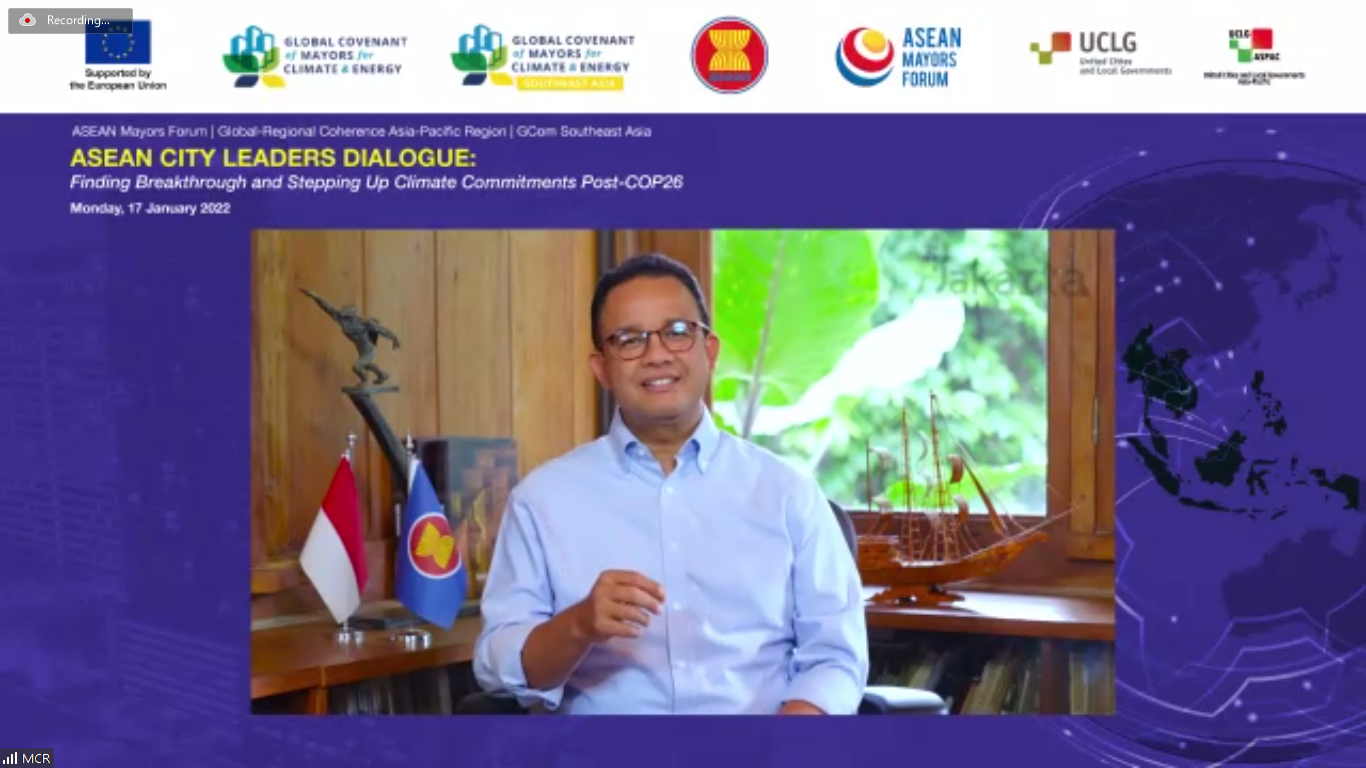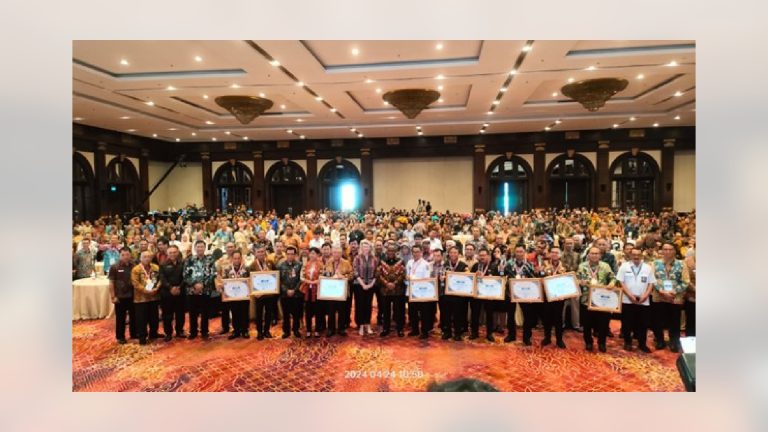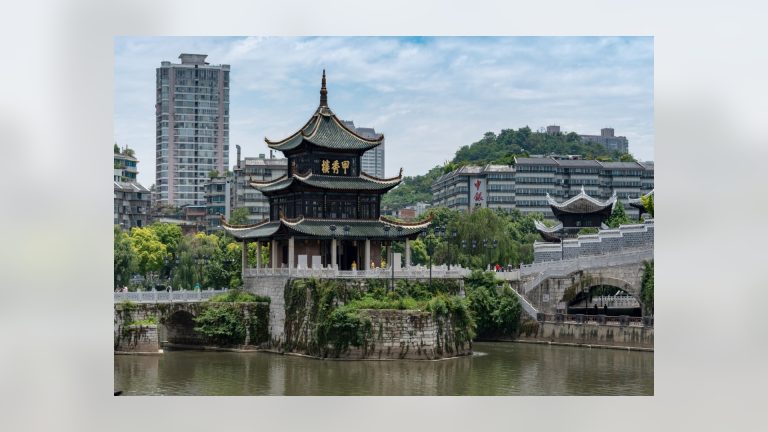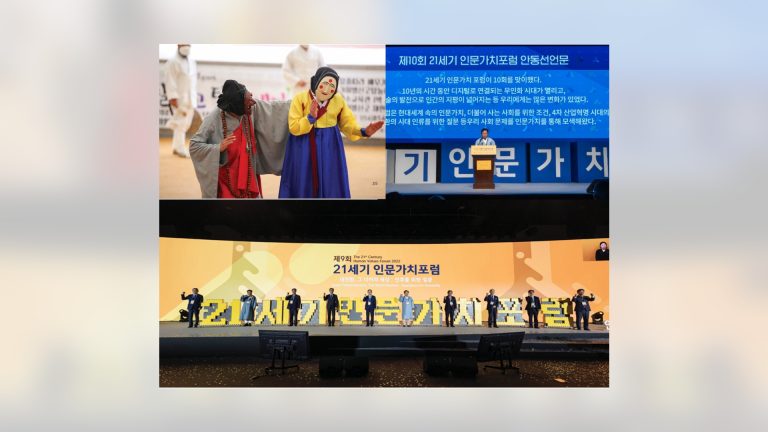For the past few decades, Southeast Asia’s face is changing with rapid urbanisation. With around 600 million populations, Southeast Asia is thriving for development and has become a prominent player in the global economy. Southeast Asia is also home to many growing megacities such as Jakarta, Manila, and Bangkok. It is not impossible that other megacities will emerge in Southeast Asia in the next few years. However, rapid development in urban areas also comes with environmental consequences as urban areas are major producers of emissions that contribute to climate change.
Climate change can affect urban areas directly through extreme weather events such as typhoons, tropical cyclones, heavy rainfalls, and drought. These phenomenons will change cities’ resiliency and people’s livelihood, as well as cities’ security on food and water. With all challenges of climate change, cities in Southeast Asia are highly sensitive to climate change. Therefore, it is crucial for cities to have adequate adaptation and mitigation responses to build resiliency to these crises.
In November 2021, world leaders gathered in Glasgow to attend the United Nations Climate Change Conference of the Parties (COP26) and yielded several ground-breaking pledges, with natural-based solutions, reducing fossil-fuel utilisation, and the inclusion of indigenous people in climate actions. COP26 also stated the importance of climate finance to help developing countries in tackling climate impacts and shifting towards clean and green technologies. Another important outcome in COP26 is the acknowledgement of multilevel cooperation and partnership, in which local governments and other non-state actors play a significant role in achieving the global target of emission reduction and keeping the temperature rise under 1.5 degrees celsius.
Intaking the momentum of post COP26 to follow up its result, under the framework of ASEAN Mayors Forum, UCLG ASPAC as the Global Covenant of Mayors (GCoM) Secretariat for Southeast Asia and Lead Coordinator for GCoM Global Regional Coherence, initiated ASEAN City Leaders DIalogue which was virtually held on 17 January 2022. Under the theme of “Finding Breakthrough and Stepping Up Climate Commitment Post-COP26”, this dialogue was aimed to be a platform to raise climate awareness among city leaders in ASEAN member states by sharing knowledge and best-practices in several ASEAN cities.
Mr. Anies Rasyid Baswedan, Governor of Jakarta Special Capital Region, Indonesia who also serves as Urban 20 Chair, in his welcoming remark said that there are five things that cities must do following COP26. First, cities must cut emissions and have an obligation to allocate resources and efforts to achieve NDCs. Second, cities need to put together work with other stakeholders to push clean energy transition without resulting in an energy crisis during the transition period. Third, cities have to push the integration of climate mitigations, adaptations, and disaster risk reduction in an integrated policy to ensure the implementation and funding aspects. Collaboration with other non-state is also important to find alternative funding resources. Fourth, cities must help the low-income communities to grow without neglecting the others by promoting green and just recovery for climate change impact and COVID-19 pandemic recovery. Fifth, cities’ commitments in climate change have to be confirmed in NDCs.
He also shared his vision on cities’ development direction in post COP26. With the increasing climate-related disasters, cities should become climate-resilient cities. Local governments also have a responsibility to develop the community’s adaptive capacity in changing the environment and changing the planet. Lastly, he encouraged all UCLG ASPAC city members to actively engage in local and regional climate action plan through cooperation with all stakeholders.
Ms. Mar-len Abigail Binay, Mayor of Makati City, Philippines and GCoM Board Member for Southeast Asia, stated that countries that are vulnerable to climate change impacts are still lacking support. While leaders are expected to put high-level ambitions and actions to achieve global net-zero, city leaders also have enormous responsibility to respond by pushing climate action locally. City leaders in ASEAN must find a way to synchronise actions that will make a lasting impact to bring down global temperature. She also urged all city leaders to commit to reaching zero emission by 2050.
Dr. Bernadia Irawati Tjandradewi, Secretary-General of UCLG ASPAC, emphasized that the Climate action agenda should be focused on climate justice, innovative solutions, and financing aspects. All plans need to be made into implementation so that the target can be achieved. However, city governments alone can’t do everything and we need to foster collaboration and partnerships. She also stated the importance of synchronized action among leaders in the region to create a significant impact to achieve the global goal.
Mr. Andy Deacon, Acting Managing Director of GCoM Global, said that for the next three years, GCoM will be working on several strategic plans. GCoM will continue to grow networks, deepen support to provide technical assistance and facilitate access for project developments, and to accelerate actions by partnering with various non-state actors. He also reminded that climate should be looked at beyond environmental or sustainability issues and we need to address climate as cross-cutting links or issues.
Ms. Emilia Saiz, Secretary-General of UCLG World, said that many of the issues that need to be pushed forward are not popular. Therefore, we need to make sacrifices to change the way we are living and we need to change the culture together. There are 3 big areas for all of us: elevating power gain around carbon emissions, working with cultural sectors to address climate emergency and reshaping societies, and rebuilding a different relationship with nature to transform our way of consumption and production.
Mr. Igor Driesmans, the European Ambassador to ASEAN, appreciated this dialogue initiative. He also acknowledged that even though the commitment of leaders is essential, it is unavoidable that the transition towards green energy will be challenging. There is big potential for ASEAN cities in engaging cooperation in energy efficiency and energy transition. City leaders are also encouraged to maximise the use of digitalisation for better city planning, lowering emissions, and building better communication with citizens.
To sum up, this dialogue is a collective effort in pursuing the global goal for a greener and liveable earth for the future generation. However, with the degrading environment at rapid speed, we must put our utmost ambition and effort into implementing the climate action plan. In post COP26, there is hope to achieve our determined goal if we hold hands and act together
#LetsStartNowStartTogether
By KM Team











